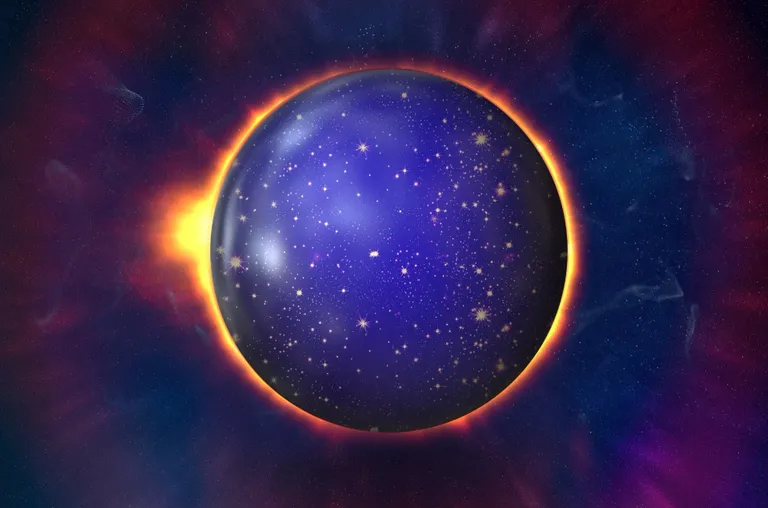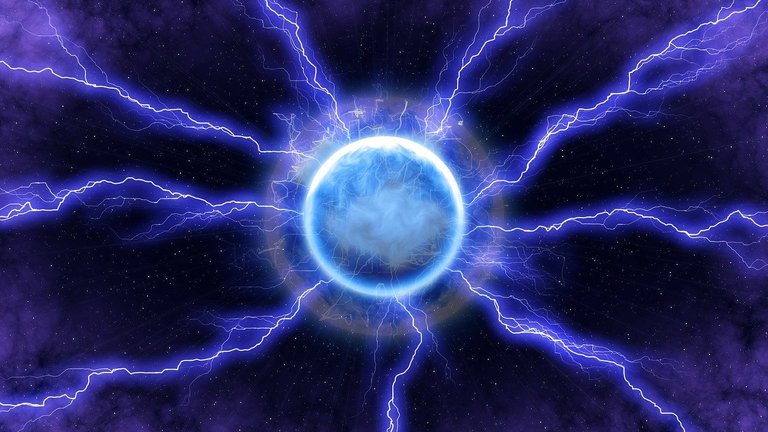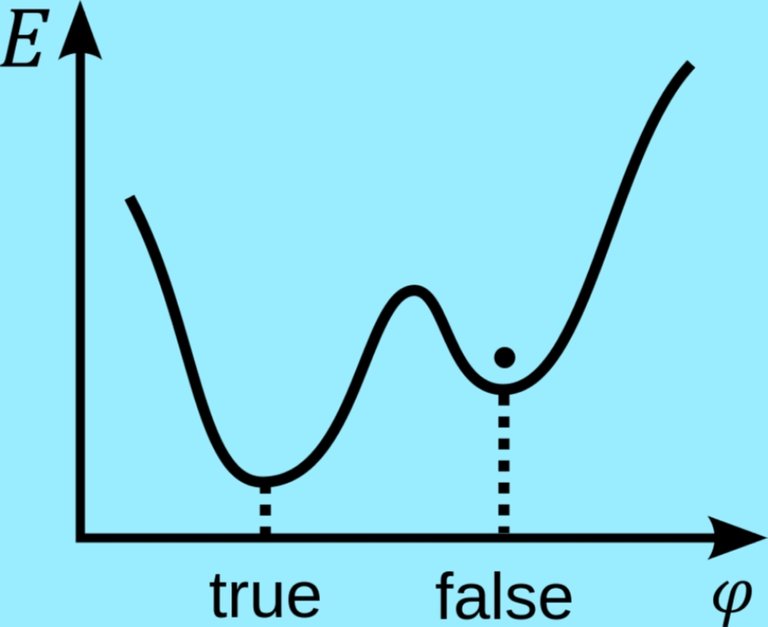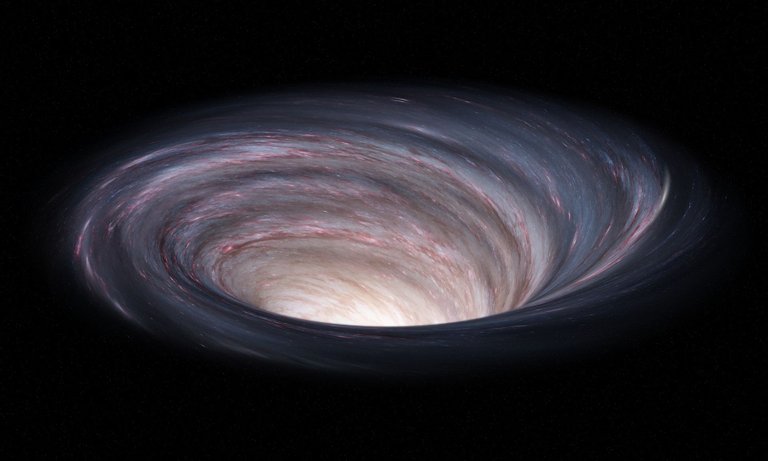How To Make A Universe 101 - Can We?
While some people dream of making babies, some others dream of making baby universes.
The former endeavour may sound easy, as we know a lot about it, and has been done already by many. But the latter at a first glance might seem impossible to do.
Where would we take all the "stuff" from to make a new universe if we don't take it from the old universe?
Well, you wouldn't need a whole bunch of "stuff" to make a new universe as you might think.

According to Albert Einstein and his famous equation (E = mc2) which reveals that mass is really just a type of energy. And more importantly, his Theory of Relativity which tells us that space is dynamic. Space can bend or curve, and space can expand.
It changes with time! And space changing with time, means the energy is not conserved.
Yes, that's true. Unlike what you might have heard alot about the law of conservation of energy, it isn't entirely true when taking the cosmic timescales into account.
The Cosmic Microwave Background (CMB) for example, is light that has been around since the universe was young. Back then it was so energetic, but ever since it has been travelling for a long time through an expanding space, it got red shifted so much into a low energy light. The CMB has lost energy over time. Energy that hasn't gone anywhere else, it just gone!
An opposite example about the non-conservation of energy is Dark Energy which can go by the name of the cosmological constant. The cosmological constant is the reason why the expansion of our universe gets faster and faster over time. It's an energy-density, which is energy per unit volume, and it is constant as the name suggests (cosmological constant).
If the energy per volume is constant and the space increases over time, that means the volume increases, then the total energy increases with the volume. Which means, in an expanding universe, you can get a lot of energy out of nothing, if you can just manage to expand space rapidly enough.
As crazy as that may sound, that's really how it works in Einstein's theory of General Relativity.


Now, since that is out of the way, let's try to utilise the dark force for making a baby universe! 👶
We don't need a lot of matter, but to make a baby universe that expands, we just have to create conditions similar to those that created the universe that we live in. Simple enough, with a minor problem, however, which is that no one really knows how our universe was created in the first place.
There are plenty of different theories for that, but none of them has observational support so far.
However, one of those theories is called Eternal Inflation which has become very popular among astrophysicists. You can read a related post about it in this previous article of mine if you want to understand the idea behind it and how our universe might be one bubble of many others.
While we don't know for sure if it's right, it could be right.
In short, according to Eternal Inflation, our universe is created from the decay of a false vacuum. [1]

To get an idea about what a false vacuum is, I'll cover briefly what a true vacuum could mean first.
While a True Vacuum is a vacuum in a state of minimal energy. You can't get any energy out of it and it's stable. It is stable because it is at a global minimum of energy. And because it already has minimal energy, it can't do anything and we can't do anything with it. [1]

As an analogy to those states, if you throw a piece of sticky dough or a wet tea bag onto a wall, for example, it will briefly stick to that wall for a moment, but then it will fall down. That moment when it was sticking to the wall is somewhat similar to a false vacuum state. Unstable, and it will eventually decay into the true vacuum state (falling down to the ground and making a mess in this case).
Another example would be, imagine you have water trapped in some water tower. While the water sits there, contained within the walls of said water tower, not moving, and seemingly very stable. It would be similar to being in a "false vacuum" state like that, because if/when the walls of that water tower fail and burst, the contained water would come down to a more stable state (A true vacuum).


How is that related to making a baby universe? 👶
Consider we have a lot of false vacuum. Within that false vacuum there's a patch that decays into a true vacuum through a process called bubble nucleation. [2] The true vacuum has a lower energy, but it can have higher pressure. And if it has higher pressure it will expand.
That's how our universe could have started, and in principle we can recreate this situation in the laboratory.
We just have to create this false vacuum state, then part of it will decay into a true vacuum, and if the conditions are right (the difference in energy between the true and false vacuums, and it overcomes an energy barrier), that true vacuum will expand rapidly. And while it expands it will create its own space, making a bubble that doesn't grow into our universe.
The bubble must overcome an energy barrier to be able to nucleate. In other words, the creation of this universe only works if you have enough energy/mass in that original blob of false vacuum. [2]
How much energy/mass do we need?
Well, it depends on some parameters of the model which we don't know for sure. But in a very optimistic case, we would need about 10 kilograms. [3]
No one really has any idea how to make 10 kilograms of false vacuum. While 10 kilograms might not sound that much to us, for particle physics that's an enormous lot! The mass equivalent that currently even the biggest particle collider (the large hadron collider) works with, is about 10-20 grams only.
Maybe if we collide big atom nuclei instead of protons, we might be able to bring this up by some orders of magnitude, but 10 kilograms is not something that high energy physicists will be working with in the near future, certainly not within our lifetime.

Sorry to disappoint you, but it seems like no one will create a new universe any time soon. Even though in principle, we could do it theoretically if the whole false vacuum thing is correct and all.
Another disappointing thing is, we can't do much with those baby universes, as they wouldn't stay connected to their mom-universe for so long. Their connection would be like a wormhole that becomes unstable very quickly, pinching off within a fraction of a second. So, maybe we would be giving birth to such baby universes, kick starting their growth right before Pooof, they're gone!
From the outside they would pretty much look like small blackholes. And this in fact could be happening all the time without anyone doing anything.
We don't really understand the quantum properties of space, so, it is believed that space makes a lot of quantum fluctuations. These quantum fluctuations happen at distances so short that we can't see them. But it could be that sometimes they create one of these baby universes.

● Thank you for reading ●
● •

© 2022 @yaziris.
Awesome post and thanks for sharing !1UP
My pleasure, thank you for your kind comment! Glad you liked it. :)
Finally I have found the time to read your post! It was really due, as this post is a great one (as all your posts usually are). As you may have noted it from elsewhere, last week was really intense for me and I had to decouple from the chain. However, I am back and slowly catching up with all blogs posted on STEMsocial last week.
I have a single thing to say here, more as a comment than as anything else. The topic is indeed a bit far from my zone of comfort…
In high-energy physics, energy conservation is related to the translational invariance of the laws of physics. However, in an expanding universe there is no such a translation invariance so that on a global scale there is no rule telling us that energy should be conserved. Therefore, there is no reason for energy conservation and this principle can be violated. Notice that I say "can", and not "must".
Therefore in an expanding universe care must be taken when we discuss even the mere notion of energy. For instance, it is very possible to see the energy of the CMB photons going into the expansion of the universe. This would provide a way for the energy to be a conserved quantity.
I wish you a very nice week! Cheers!
Don't worry about it. I know how busy you are, and I really have no idea how you keep up with all that you do :) I only moderate a community plus few other minor things and RL, and barely finding enough time to write and post once a week and/or read and keep up with things.
About the energy conservation:
It "can", but with current theories, Noether's theorem, and data, it "is" violated on that timescale due to no translation invariance in an expanding universe as you have mentioned.
Regarding CMB energy loss;
As far as I know, there isn't as nearly CMB to cover for it. Dark energy is increasing at a much higher rate than the CMB loses energy.
Ofcourse, we are not throwing out conservation of energy or the second law of thermodynamics (which is another topic), as violations are only on such extremes and it is unhelpful to do so.
Thanks for the always insightful comments, and wish you a wonderful week too!
Thanks for this replies, which I agree with. Let me come back to one point:
Let me be more specific: the CMB contributes to it. It does not need to take it all. I was probably a bit too sloppy in my initial comment ;)
After looking a bit on the web, I have found this very nice blog on the topic. This goes along the same lines as my comment, but in a more expanded manner. The more important item it points out is that we must be careful even with the way we define energy in an expanding universe.
Unfortunately, the disasters are back since this morning :(
OMG, it's the same article I found and read right after reading your first comment and doing some Googling about the topic. xD
Yeah, I totally agree with what you said after the initial misunderstanding got cleared up now.
Ouch! Really hope nothing too big or unmanageable. :(Ahaha nice coincidence. In fact, it is not the first time I get to this blog when browsing extra material online. This is a very good one.
Manageable, but painful emotionaly.
Sorry to hear that man :(
This is how it is, unfortunately...
You have received a 1UP from @mango-juice!
@stem-curator, @vyb-curator, @pob-curator, @neoxag-curator, @pal-curatorAnd they will bring !PIZZA 🍕
Learn more about our delegation service to earn daily rewards. Join the family on Discord.
Congratulations @yaziris! You have completed the following achievement on the Hive blockchain and have been rewarded with new badge(s):
Your next target is to reach 4000 upvotes.
You can view your badges on your board and compare yourself to others in the Ranking
If you no longer want to receive notifications, reply to this comment with the word
STOPCheck out the last post from @hivebuzz:
Thanks for your contribution to the STEMsocial community. Feel free to join us on discord to get to know the rest of us!
Please consider delegating to the @stemsocial account (85% of the curation rewards are returned).
Thanks for including @stemsocial as a beneficiary, which gives you stronger support.